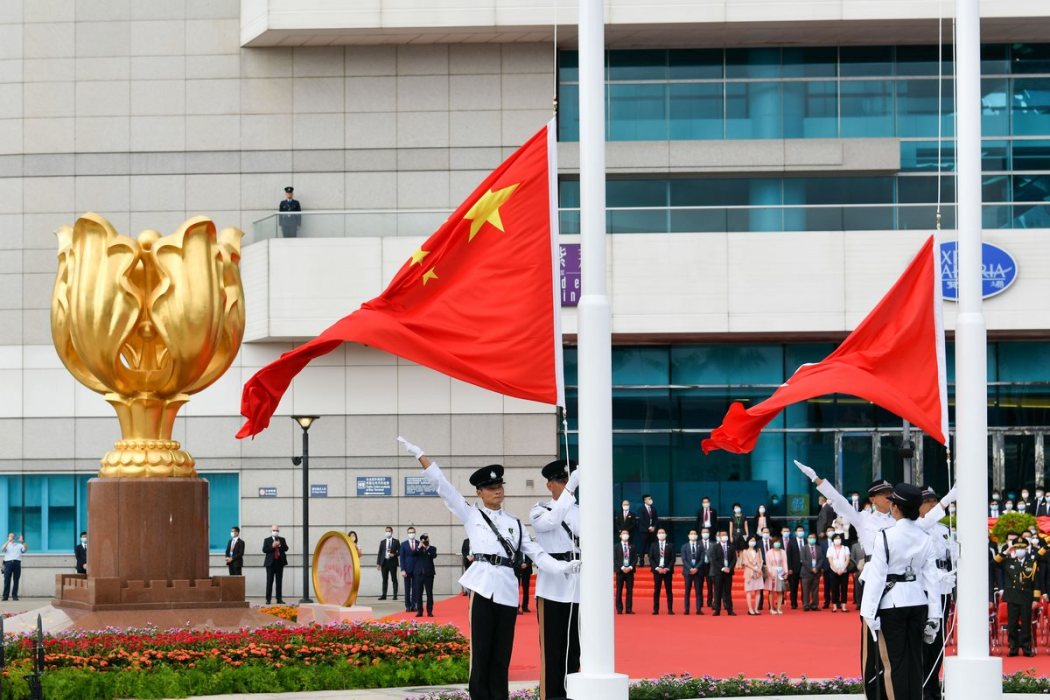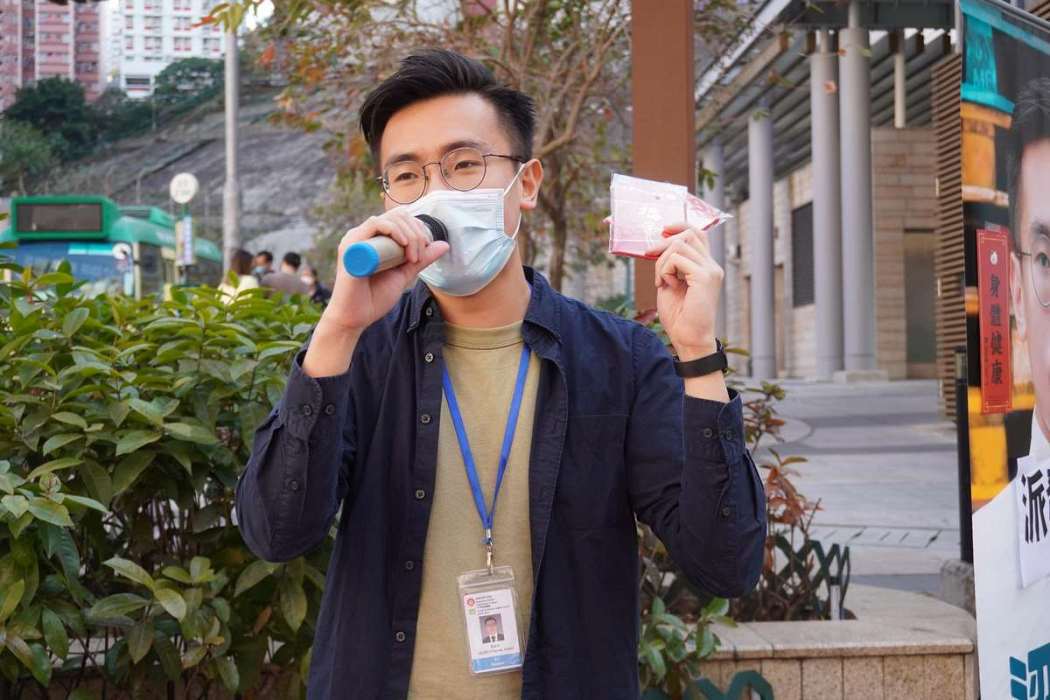Four Hong Kong pro-democracy district councillors have vowed to serve their communities “till the last moment,” after the government signalled that they will be ousted once a new oath-taking law for public officers is passed.
Constitutional and Mainland Affairs minister Erick Tsang revealed plans for a law on Tuesday which would require district councillors to swear allegiance to the Hong Kong government and vow to uphold the Basic Law. A five-year election ban will be imposed on those who fail to comply.

The oath-taking requirement already covers members of the higher-level Legislative Council and civil servants and will now be extended to the 18 district councils, all but one of whom are controlled by democrats after their landslide win in 2019. They are seen as the last pro-democracy force left in Hong Kong after pan-democratic members of LegCo resigned en masse last year following the disqualification of four of their colleagues.
Tsang told reporters that incumbent district councillors Lester Shum, Tiffany Yuen, Tat Cheng, and Fergus Leung – who were previously barred from standing in the now-postponed 2020 Legislative Council election – would “in theory” be disqualified as district councillors soon as the amendment is passed.
The four were among a dozen democrats – including high-profile activist Joshua Wong – whose nominations were ruled as invalid by returning officers last July. Some were told they did not have a “genuine and true intention” to uphold the Basic Law,“ with the authorities citing their objections to the Beijing-imposed national security law.
Tat Cheng – a former Civic Party member – described the oath-taking requirement, which also outlined a list of “positive” and “negative” behaviour, as “unprecedented.” The list set out actions that would be deemed as complying with – or breaching – the loyalty oath. Committing acts endangering national security, advocating Hong Kong’s independence and insulting China’s national anthem are all considered contraventions of the oath.

The Eastern District Council member accused the government of “ignoring public opinion” and choosing to disqualify a group of elected representatives who “told the truth.” But he told Hongkongers to remain hopeful despite what critics see as an attempt to further eliminate opposition in the city.
“We still have people, then we still have hope!” Cheng wrote on Facebook. “I will fulfil my duties as a democratically elected councillor until the last moment. Thank you everyone.”
Lester Shum, currently serving in the Tsuen Wan district, gave a short response to his looming disqualification on Facebook. He said it was expected that the authorities would “stifle” opposition in the city.
“Completely stifling the space for dissidents, that is expected. Although the ending is set, [I] will remain in my position and carry out my duties until the last moment,” Shum wrote.

The former student activist later penned another post about the possibility of having to repay part of his salary and expenses, if the disqualification transpires. He shared an image which appeared to show a HK$0.60 balance in a bank account, saying the authorities could “slowly” get money from him.
“I heard that apart from being disqualified, we would also be asked to pay back salaries and expenses incurred after July 31, 2020. Then I thought, it’s good to be poor,” Shum wrote.
The oath-taking bill was unveiled a day after senior Beijing official Xiao Baolong said it was urgent to “perfect” the city’s electoral system to ensure only “patriots” hold power. The head of China’s Hong Kong and Macao Affairs office said the Beijing-led changes would prevent “anti-China” opposition forces from entering Hong Kong’s political structure.

Shum and Leung said they had expected to lose their seats after last July’s mass disqualification of pro-democracy legislative election hopefuls. Leung said Tsang’s announcement “made things clearer,” as he could now anticipate when he would lose his spot in the Central and Western District Council.
“Although the disqualification is settled, I promise to everyone, I will definitely serve people with the identity as a councillor until the last moment,” he said. “No council seat does not mean Hong Kong’s pro-democracy movement will die out.”

Like the other district councillors who may face expulsion, Tiffany Yuen said it had been anticipated, and she was “angry as usual.” She said she would make use of the remaining time to do more work while apologising to her team for taking up this “unstable job.”
“On that day [I was elected], I promised I would make Tin Wan better. I never breached this oath,” the Southern District Council member wrote.
Correction 25/2: A previous version of this article incorrectly stated that Tat Cheng is a member of the Civic Party – he quit last December.
Support HKFP | Policies & Ethics | Error/typo? | Contact Us | Newsletter | Transparency & Annual Report | Apps
Help safeguard press freedom & keep HKFP free for all readers by supporting our team
























